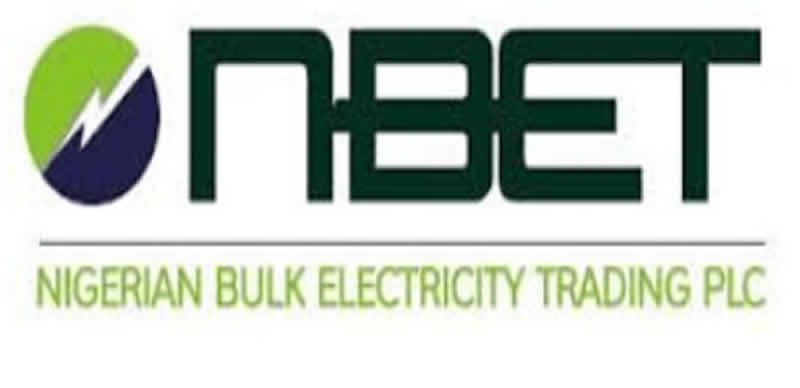
Remittance from electricity distribution companies to the Nigerian Bulk Electricity Trading Company and Market Operator dropped by N70bn in the first quarter of 2022, according to newly released data by the Nigerian Electricity Regulatory Commission.
The report showed that the combined invoices from the Nigerian Bulk Electricity Trading Company and Market Operator to Discos were N412bn in 2022/Q1.
A breakdown of the invoices indicated that the Discos were to pay about N206bn as generation costs; N165bn and N41bn for transmission and administrative services respectively.
Out of N206bn, the Discos remitted N136bn with NBET getting N110bn and MO got N26bn and an outstanding balance of N70bn.
The power market regulator, NERC, said poor remittance was a direct consequence of the Discos recording higher than allowed Aggregate Technical, Commercial and Collection loss.
The loss put at 48 per cent in the sector in 2022/Q1 comprises technical and commercial loss of 23 per cent and a collection loss of 31 per cent. The ATC&C loss increased by 0.9 per cent compared to 47 per cent recorded in Q4 2021.
A breakdown of Discos’ remittances to NBET and MO showed that out of the total invoice of about N203bn NBET issued to Discos for energy generation costs, it was expected to receive about N165bn under the Minimum Remittance Order derived from the allowed tariff. However, it received only N110bn in Q1 2022.
Due to the absence of cost-reflective tariffs across all Discos, the Federal Government had to cover up the difference in form of subsidy to energy consumers to the tune of N38bn during this period (about N13bn per month).
Overall, the total Disco remittance performance to NBET was 67 per cent of the expected MRO for 2022/Q1 compared to 68 per cent in the prior year. They remitted N109bn against an MRT-adjusted invoice of N160bn in Q4 2021.
MO received only N26bn in the DisCos out of the N41bn it was expecting from them during this period, indicating a remittance performance of 63 per cent for the quarter.
This represented a 15 per cent decrease compared to 78 per cent with the Discos remitting N40bn against an invoice of N50bn issued.
The total energy received by all Discos in 2022/Q1 was put at 7,300.05GWh while the energy billed to the end-users was 5,649.21GWh.
From the C296bn energy billed in the quarter, the Discos were able to collect N200bn, representing a collection efficiency of 67 per cent, amounting to a two per cent reduction compared to 2021/Q4, when the average collection efficiency was 69 per cent.
In monetary terms, although the billing in 2022/Q1 was reduced by N7bn, revenue collections dipped by about N11bn.
The drop in billing collection also resulted in an Aggregate Technical, Commercial and Collection loss of about 48 per cent in the sector in Q1 2022.
The technical and commercial loss was 23 per cent and the collection loss stood at 31 per cent.
The ATC&C loss increased by 0.97 per cent when compared to 47 per cent in Q4 2021.
The report stated that all Discos did not meet their allowed ATC&C loss targets as specified in the Multi-Year Tariff Order, meaning that all Discos exceeded their efficient loss targets and thereby were not able to earn the revenue requirement upon which their approved tariffs for the period were set.
“Many customers continue to default in payment of their billed amounts due to declining capacity (economic reasons) and willingness to pay (including unsatisfactory Disco services). This has led to mounting commercial losses recorded by Discos,” NERC said.
Collection efficiency of 70 per cent, for instance, implies that for every N10 worth of energy billed to customers by Discos; approximately N3 remained unrecovered from the billed customers.
The decrease was largely driven by Kano and Kaduna Discos which recorded significant declines in collection efficiency by five per cent and three per cent respectively.
On the other hand, Eko, Ikeja and Yola Discos recorded an increase in collection efficiency of +1.2, +1.7, and +3.4 per cent respectively between 2021/Q4 and 2022/Q1.
Although the amount collected by Benin and Port Harcourt Discos increased in absolute terms, between 2021/Q4 and 2022/Q1, their collection efficiency declined by two and 1.6 per cent respectively.
To improve this performance, the commission said it continued to actively track each Disco’s progress under various metering interventions – the National Mass Metering Program funded through the Central Bank of Nigeria and the Meter Asset Provider scheme.
“There is an urgent need for all the Discos to take emergency remedial actions through customer enumeration and increased revenue assurance to improve their ATC&C losses. Failure to resolve this will not only prevent the Discos from being able to meet their upstream obligations, but it will also saddle them with too much debt and erode their equity,” power sector expert, Sesan Okunade, told The PUNCH.





